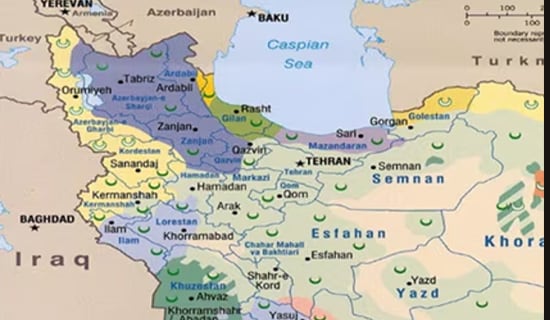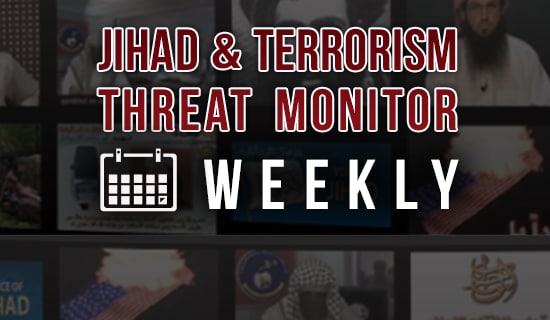Special Dispatch No. 4743
On Eve Of Chicago NATO Summit, Hekmatyar Denounces Afghan-U.S. Strategic Pact, Calls For Unified Military Front of Militant Groups, States: 'We Will Continue Jihad Till the Complete Withdrawal Of Foreign Troops and the Establishment Of... Islamic Government In An Independent Afghanistan'
Note to media and government: For a full copy of this report, send an email with the title of the report in the subject line to media@memri.org. Please include your name, title, and organization in your email.
Following are excerpts from an interview with Gulbuddin Hekmatyar, the fugitive chief of Hizb-e-Islami Afghanistan, published by a Pashtu-language Pakistani newspaper on the eve of the May 20-21 NATO Summit in Chicago. The interview comes at a time when Hizb-e-Islami, the second-largest terrorist group in Afghanistan, is negotiating with the Taliban and other militant groups over forming a unified political and military front of all Islamic groups in Afghanistan. The aim of such a front would be to strengthen the jihadi forces in order to take on the Afghan government after U.S. and NATO troops withdraw from the country by the end of 2014.
To read the full report, visit On Eve Of Chicago NATO Summit, Hekmatyar Denounces Afghan-U.S. Strategic Pact, Calls For Unified Military Front of Militant Groups, States: 'We Will Continue Jihad Till the Complete Withdrawal Of Foreign Troops and the Establishment Of... Islamic Government In An Independent Afghanistan'.
To view this report, you must be a paying member of the Jihad and Terrorism Threat Monitor Project (JTTM). For membership information, send an email to jttmsubs@memri.org with "Membership" in the subject line.
Special Dispatch No. 4742
Pakistani Women Writers Denounce Islamic Clerics' Fatwas Against Women's Use Of Cell Phones And Access To Secular Education
Former Pakistani lawmaker and cleric Maulana Abdul Haleem recently issued a fatwa (Islamic degree) against secular education and justifying honor killings of women. The fatwa was issued in a sermon during a weekly Friday prayer in Kohistan district in Pakistan's Khyber Pakhtunkhwa province. Haleem also threatened that women from secular NGOs who visit Kohistan district may be married off forcibly to local men. In a similar incident, a cleric announced a fatwa in a mosque in Noshki town of Pakistan's Baluchistan province, justifying acid attacks on women who use cell phones.
Both fatwas elicited no condemnation from the main Pakistani media. However, two Pakistani women – an author and a blogger –slammed the clerics' fatwas, arguing that there is an urgent need to stop such fatwas against women. In an article titled "Fatwas Against Women: From The One Who Wears Bangles," Fouzia Saeed – an author and a social scientist – stated: "I think it is time for our society to forcefully stop such people who not only violate the dignity and safety of women citizens, but also give a bad name to Islam…"
In another article "Our Stunted Society," blogger and communications consultan Tzeen Javed argued that such fatwas are breeding narrow-mindedness. She wrote: "A country like ours can ill-afford adventurism of any kind, but most dangerous is the practice of resorting to a fatwa to get a point across. Not only does this breed a narrow and rigid view of issues, it also leaves no room for dialogue, debate, and consultation, making us an increasingly 'stunted' and intolerant society."
To read the full report, visit Pakistani Women Writers Denounce Islamic Clerics' Fatwas Against Women's Use Of Cell Phones And Access To Secular Education.
Special Dispatch No. 4741
Articles In Urdu Daily On Anniversary Of Osama Bin Laden's Death: 'Despite All The Efforts By The U.S., The Love For Sheikh [Osama Bin Laden] In The Hearts Of The People Could Not Be Taken Out… Innumerable Areas … [Of Afghanistan] Are Under The Taliban's Complete Control'
On May 2, 2012, Roznama Islam, an Urdu-language Pakistani daily, carried several articles on the first anniversary of the killing of Al-Qaeda leader Osama bin Laden in a U.S. operation in Abbottabad, assessing the success or failure of the U.S. military operation in Afghanistan and arguing that the U.S.-led war now involves defending Kabul itself.
In an article titled "Martyrdom of Osama: Who is the Victor?" columnist Abid Mahmood Ezam questioned the U.S. claims of victory, reminding the U.S. that it had to bear heavy losses in the year after bin Laden's killing. In fact, he argued, Osama bin Laden succeeded in his goal of pushing the U.S. into a valley of humiliation.
In another article, titled "Could the Afghan Security Forces Compete with the Taliban after the Foreign Forces' Pullout from Afghanistan?" and written by one "Abdullah", the Urdu daily argued that several regions of Afghanistan are in the Taliban's complete control, and the recent Taliban attacks in Kabul indicate that the jihadist forces are strong.
To read the full report, visit Articles In Urdu Daily On Anniversary Of Osama Bin Laden's Death: 'Despite All The Efforts By The U.S., The Love For Sheikh [Osama Bin Laden] In The Hearts Of The People Could Not Be Taken Out...;' 'Innumerable Areas ... [Of Afghanistan] Are Under The Taliban's Complete Control'.
Special Dispatch No. 4740
Taliban Affairs Expert Rahimullah Yusufzai Explains May 13 Killings Of Leading Religious Figures In Afghanistan And Pakistan
On May 13, 2012, three leading religious figures were shot dead – two of them in Pakistan and one in Afghanistan.
Maulvi Arsala Rahmani, who was a senior member of Afghanistan's High Peace Council (HPC) tasked with holding peace talks with the Taliban and other militant groups, was killed in Kabul. In Pakistan, leading Islamic scholar Aslam Sheikhupuri was killed in Karachi, probably in a case of sectarian attack, while another religious leader Maulana Syed Mohammad Mohsin Shah, known for his stand against the Taliban, was killed in Khyber Pakhtunkhwa province.
In an article titled "Three Assassinations," Pakistan's well-known Taliban affairs expert Rahimullah Yusufzai alleged that the acts were sponsored by those who want to keep the Afghanistan-Pakistan region in turmoil. "The least that could be done is to expose the sinister designs of those sponsoring assassinations of such known religious scholars who enjoy respect and are capable of reaching out to the militants. Eliminating such people is clearly part of plans to keep Afghanistan and Pakistan in perpetual violence," Yusufzai wrote.
To read the full report, visit Taliban Affairs Expert Rahimullah Yusufzai Explains May 13 Killings Of Leading Religious Figures In Afghanistan And Pakistan.








